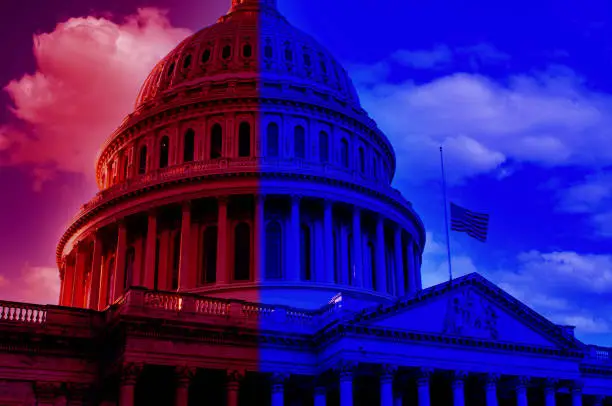
Donald Trump’s pardoning of roughly 1,500 criminal defendants charged from the January 6th insurrection is a dangerous step in undermining American democracy and freedom. It reveals deeper concerns about democratic erosion in the United States and should serve as a warning to Americans of what is to come next in the second Trump administration.
To comment on the institutional attack on democracy this poses, we will analyze it through the lens of democratic theory, particularly the work of scholars including Nancy Bermeo, Steven Levitsky, Daniel Ziblatt, and Robert Dahl, who have all outlined signs of democratic erosion and how a leader may use the very institutions used to preserve democracy against itself. This leads to a democracy weakening from within.
Nancy Bermeo (2016), defines democratic backsliding as “gradual changes across a more circumscribed set of institutions,” where all-out regime change is unlikely. Trump’s pardons fit this idea by undermining the rule of law, a fundamental idea required for democracy. Instead of treating insurrectionists as criminals, and insurrection as a criminal act against the state itself, these pardons suggest that either January 6th was not an insurrection or that insurrections can be justified. Both of which are particularly concerning. First, indicating that the events on January 6th were not an attempted coup, where a violent mob attempted to stop the certification of our presidential election, and where five police officers died in the aftermath, is dangerous. But even more so is to suggest that insurrection can be justified – in this case, because of a rigged election. Trump did so by suggesting that the insurrectionists were political prisoners. This is a textbook example of what Bermeo calls “executive aggrandizement,” where leaders weaken checks on their power. By suggesting that an attack on the capitol can be justified and that the perpetrators are innocent, Donald Trump is signaling to his supporters that the laws of the land no longer apply to them.
Additionally, Steven Levitsky and Daniel Ziblatt (2018) argue in How Democracies Die, that one of the most dangerous signs of democratic backsliding is when other political elites fail to uphold democratic norms. In this case, this would include rejecting violence and accepting the legitimacy of elections. However, the January 6th attack was the culmination of violent rhetoric starting from the lies spread over a free and fair election. By pardoning those involved, Trump is not only normalizing this behavior, but endorsing it – this could incentivize future assaults on our democratic institutions and processes. Additionally, other political elites have let this happen. Republican leaders from Josh Hawley to Marjorie Taylor Greene have been actively supporting the January 6 defendants describing them as victims. But even more concerning is more central leaning Republicans turning a blind eye. This will only strengthen Trump’s power as he is avoiding opposition from within the party or Congress.
Finally, Robert Dahl (1972) in Polyarchy: Participation and Opposition argues that democracy should be viewed as a continuum that varies based on political participation and opposition. With Trump, we can see how he is trying to undermine both participation and opposition. Declaring the election as illegitimate suggests to citizens that voting is worthless, and rejecting the electoral results suggests political opponents are illegitimate.
The decision to pardon the January 6 defendants is not a rash, impulsive decision by a seemingly defiant man. It is part of a broader pattern of ignoring laws and norms to strengthen his hold on power. Through the lens of democratic scholars, it is clear that these actions weaken the rule of law, legitimize violence, and erode our democracy. As these scholars have discussed, democracies may not collapse overnight, but rather weaken gradually. This act does just that and must be called out as such.

0 Comments